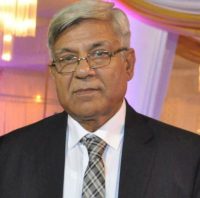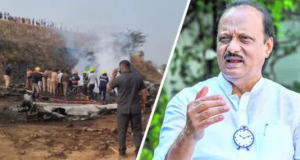THE OBSCURE PRECURSORS OF CITIZENSHIP AMENDMENT ACT 2019 ?
By Najmuddin A Farooqi
At the outset let us examine Foreign Exchange Management Act (FEMA)1999, particularly in light of its latest amendments, notified on March 26, 2018. These amendments impose restrictions on citizens of specific countries; Hong Kong, China, Bangladesh, Sri Lanka, Afghanistan, Iran, Pakistan, Macau, Nepal, Bhutan and Democratic People’s Republic of Korea prohibiting them from acquiring immovable property in India without prior approval from Reserve Bank of India. The only exception to this rule applies to leases not exceeding five years.
FEMA is composed of twelve regulations, but it is Regulation No. 7 that directly addresses property ownership for certain foreign nationals.
Regulation No.7: Property Ownership on Long-Term Visa (LTV)
This regulation allows individuals, who are citizens of Afghanistan, Bangladesh or Pakistan belonging to minority communities (Hindus, Sikhs, Buddhists, Jains, Christians and Parsis) and are residing in India on a Long-Term Visa (LTV), to:
1. Purchase one residential property for self-occupation.
2. Acquire one immovable property for self-employment purposes.
However, the benifit comes with conditions:
a. The property must not be located in restricted or prohibited areas.
b. If the property is used in any anti-national activity, it is liable for confiscation.
c. The property can’t be sold or transferred without explicit approval from appropriate authority.
Long-Term Visa (LTV)
1. LTV is issued to individuals seeking settlement in India for the purpose of acquiring Indian citizenship.
2. Muslims are not excluded from LTV eligibility, ‘specific categories’, even from Pakistan, Bangladesh and Afghanistan may get LTV (those ‘specific categories’ of Muslims are still eligible).
3. Individuals born in India before 2004 remain eligible for Indian citizenship, regardless of their parents’ origins, including Muslims.
Media Coverage and Legislative Oversight
Though the 2018 FEMA amendments were covered by the media. All widely circulated newspapers published this news, yet they largely escaped scrutiny from opposition parties and civil society. These amendments stemmed from earlier changes brought about by Passport (Amendment) Rules 2015 and Foreigners (amendment) order 2016.
The 2015, 2016 amendments granted exemptions, under Passport Act 1920 and Foreigners Act 1946 respectively, to the minority communities Hindu, Sikh, Buddhist, Jain and Christian from Bangladesh and Pakistan who entered India on or before Dec 31, 2014, without valid travel documents or who overstayed. Afghanistan was added to this list on July 18, 2016. It is also crucial to understand that these FEMA regulations apply to citizens from many countries not just Pakistan, Bangladesh and Afghanistan.
The RBI amended FEMA Regulation No. 7 to comply with updated Passport Rules, thereby permitting limited property ownership to eligible minority nationals from the above countries holding LTV.
At the same time, it is worth noting that non-resident individuals, regardless of religion, may open Non-Resident Ordinary (NRO) bank accounts and general banking operations do not involve religious scrutiny.
Lack of timely Public and Political Response
It is both surprising and troubling that the phased introduction of these legal changes in 2015, 2016 and 2018 failed to attract attention or reaction from opposition parties or civil society. Even critical developments such as humanitarian implications of NRC in Assam, publication of draft list on July 31, 2018 and final list on Aug 31, 2019 couldn’t trigger substantial national debate or action.
Significant public reaction only emerged with the introduction of the CAB in Lok Sabha on Dec 9, 2019. The Muslim community led street protests, reacting strongly to what was perceived as culmination of discriminatory legal developments.
Why was there silence until introduction of CAB ?
Questions arise, why passport amendment rules 2015, Foreigner’s (amendment) order 2016 and amendments in FEMA 2018 received no or negligible attention, while the CAB triggered widespread protests. Was the legal basis of these changes significantly different, or was it the narrative and political climate in 2019 that changed public perception ?
The CAB sought to amend the Citizenship Act 1955, to provide citizenship eligibility to illegal migrants who are Hindus, Sikhs, Buddhists, Jains, Parsis, and Christians from Afghanistan, Bangladesh, and Pakistan. These migrants may otherwise be detained or deported under the Foreigners act 1946 and the Passport (Entry into India) Act, 1920, which govern the regulation of foreigners in India.
To facilitate this change central government had already issued notifications in 2015 and 2016 exempting aforementioned groups from the scope of these Acts, as long as they had arrived before Dec 31, 2014. Thus, they can’t be deported for lacking valid documentation.
Legal Challenges and Constitutional Questions
The focal point of opposition to CAB 2019 (introduced first on July 19, 2016 attempted to formalize these exemptions ) was, the bill violates Article 14 of the constitution which guarantees equality before law for all including foreigners. Article 14 allows for reasonable classification but requires a rational basis for differentiating between groups.
Critics argue that differentiation based on religion as the CAB/CAA does, violates this principle, especially since the Statement of Objects and Reasons does not sufficiently justify why only certain religious groups are included.
Silence of opposition, when the same Article 14 of the constitution was violated in 2015, 2016 and 2018 on the similar premise before enactment of CAB 2019, is incomprehensible even today ?
 Times Of Pedia Times of Pedia TOP News | Breaking news | Hot News | | Latest News | Current Affairs
Times Of Pedia Times of Pedia TOP News | Breaking news | Hot News | | Latest News | Current Affairs




